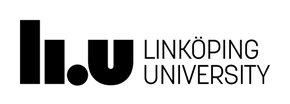Outdoor and Sustainability Education

Discover the educational potentials of leaving the classroom and exploring the surroundings.
All children deserve the opportunity to learn and reach their full potential. This master’s programme will increase your knowledge about learning processes with a focus on school-based learning, using different modes and methods. The advanced courses in educational science will help teachers and other educators understand how a variety of outdoor environments can be used as resources for learning and knowledge. During the courses you will learn the theoretical backgrounds for using other learning environments than the classroom.
Outdoor education is a diverse field of research and practice. This programme derives from the Scandinavian perspective on outdoor education - the concept of "uteskola", literally meaning outdoor school. In outdoor school the syllabus is taught outdoors on a regular basis in an interplay with indoor learning. You vill broaden your professional expertis as a teacher by training to use outdoor environments for teaching and learning.
Outdoor learning for all ages
You will gain theoretical and practical knowledge on how to teach different school subjects outdoors, in natural as well as urban environments. We explore the city, nature reserves and other green settings, play grounds and school grounds as learning environments. Examples of educational settings come from the entire school system, pre-school up to secondary school. You will also have the possibility to focus on your particular interests and field of practice.
In addition to classroom lectures and seminars, students work in pairs or groups for assignments in outdoor natural and cultural landscapes. All program courses include individually written assignments and you will collect your own empirical data for your thesis.
Na studia magisterskie mogą kandydować wszyscy, którzy ukończyli studia licencjackie lub inżynierskie (studia I stopnia), studia magisterskie lub studiują na ostatnim roku studiów I-stopnia. Studia, które planujesz powinny mieć zbliżony profil do tych obecnych lub ukończonych, ponieważ w procesie rekrutacji kluczowa jest ich zgodność programowa.
- Wykaz punktów ECTS – osoby, które są jeszcze w trakcie studiów, muszą załączyć wypis punktów ECTS, w którym będzie wykazane, jakie przedmioty były realizowane na studiach oraz ile punktów za nie otrzymano.
- Dyplom ukończenia studiów licencjackich lub inżynierskich – jeśli jesteś absolwentem wyższej uczelni, nie potrzebujesz wypisu, wystarczy załączyć dyplom ukończenia studiów wraz z suplementem (oryginał z tłumaczeniem przysięgłym)
Spełnienie wymagań w zakresie języka angielskiego można udokumentować w następujący sposób:
- IELTS - 6.5 (minimum 5.5 z każdej części) lub
- TOEFL – 90 (w tym minimum 20 z pisania). Wynik musi zostać przesłany na uczelnię bezpośrednio z centrum egzaminacyjnego.
*Wymagania językowe mogą się zmieniać i różnić w zależności od kierunku - przed aplikacją sprawdź wymagania bezpośrednio na stronie uczelni.
- A Teacher or Pre-school Teacher Degree of at least 180 ECTS credits or Bachelor's Degree with a major in Education or the equivalent.
Following the final examination, students will have gained theoretical knowledge and practical experience within the field of outdoor education for working with pedagogical development in schools or other educational fields in society.
Alternatively, students may continue to conduct research leading to a doctoral degree.
